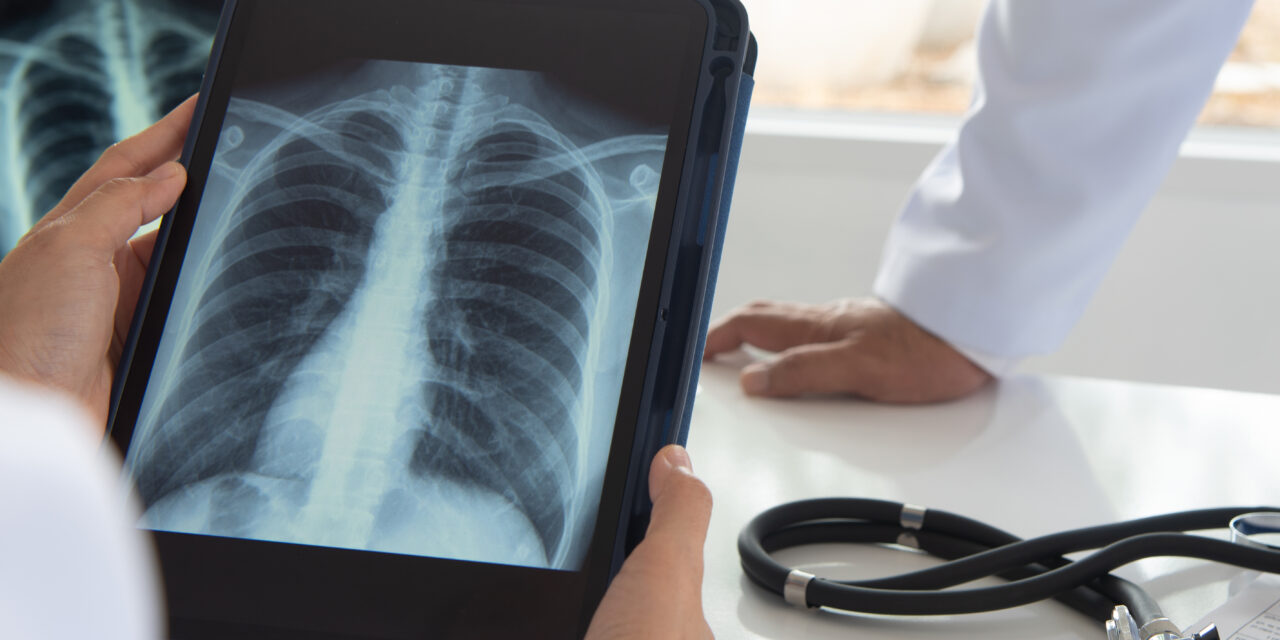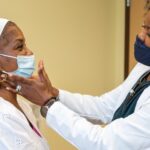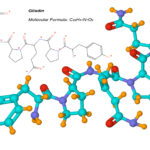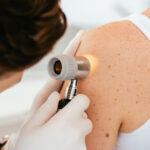By Annette Pinder
The only current recommended screening test for lung cancer is low-dose computed tomography (also called a low-dose CT scan or LDCT). Getting screened for lung cancer involves lying on a table for a few minutes during which an X-ray machine uses a small dose of radiation to obtain detailed images of your lungs.
The U.S. Preventive Services Task Force (USPSTF) recommends yearly LDCT lung cancer screening for people with a 20 pack-year history or more of smoking; who currently smoke or have quit within the past 15 years; and are between the ages of 50 and 80. To better understand, a pack-year is smoking about one pack of cigarettes per day for one year. Thus, a person would have a 20 pack-year history from smoking one pack a day for 20 years or two packs a day for 10 years.
“Risks to lung cancer screening include a false positive result, which could lead to unnecessary follow-up tests or surgeries that have risks. Repeated LDCT tests can also expose otherwise healthy people to unnecessary radiation. However, the advantage of finding lung cancer earlier while it is curable, outweighs these risks,” says Yaron Perry, MD, FACS, of UB Jacobs School of Medicine and Great Lakes Cancer Care Collaborative.
Lung cancer screening is primarily recommended for adults at high risk for developing the disease based on age and smoking history. It is also recommended for those who are not experiencing a health problem that limits their life expectancy and ability to have lung surgery, if needed. “Screening is no longer necessary after age 81; if you have not smoked in 15 years or more; or if you have a health problem that prevents you from having surgery,” says Dr. Perry.
Unfortunately, people are sometimes reluctant to ask for lung cancer screening. Individuals with a smoking history often blame themselves or others for putting themselves at risk for lung cancer. However, smoking is not the only cause of lung cancer. If you decide to get screened, your doctor may ask if you smoke, and if you are ready to quit, and provide you with information to help you quit. “Fortunately, no matter how long you have been smoking, quitting has an immediate impact on the health of your lungs, and can help reduce your risk for lung cancer and other chronic diseases,” says Dr. Perry. Additionally, most insurance plans and Medicare help pay for recommended lung cancer screening tests. Check with your insurance plan to find out what benefits are covered for lung cancer screening.
Yaron Perry, MD, FACS is a UB Jacobs School of Medicine clinical professor, division chief of thoracic surgery and director of comprehensive thoracic malignancy service at Great Lakes Cancer Care Collaborative. Dr. Perry specializes in lung and esophageal cancer surgery, and robotic thoracic surgery. Using an advanced screening program that detects lung cancer using low-dose CAT Scans, he has performed more than 1,800 surgical procedures in the last five years alone. To make an appointment to see Dr. Perry call 716-859-7937. Learn more about Dr. Perry at https://www.greatlakescancercare.org, where you can also request an appointment.












